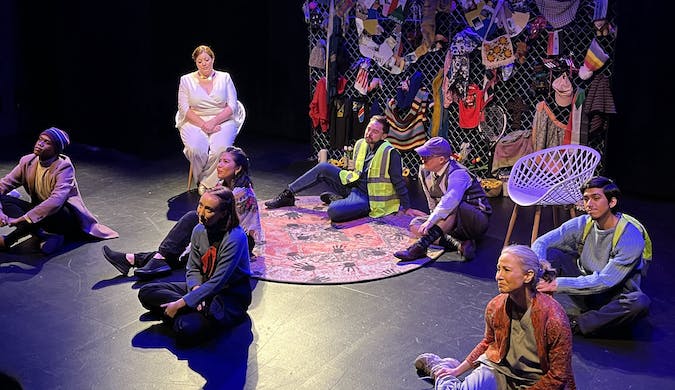
The 82nd Whitney Biennial Masters the Art of Ideological Grandstanding
By MARIO NAVES
|Although ‘Refugees’ may sound like an earnest, even preachy exercise on paper, Stephen Kaliski, wielding a deft mix of skepticism and whimsy, portrays both the issues at hand and the people divided over them as maddeningly complicated.

Already have a subscription? Sign in to continue reading

By MARIO NAVES
|
By LUKE FUNK
|
By THE NEW YORK SUN
|$0.01/day for 60 days
Cancel anytime
By continuing you agree to our Privacy Policy and Terms of Service.